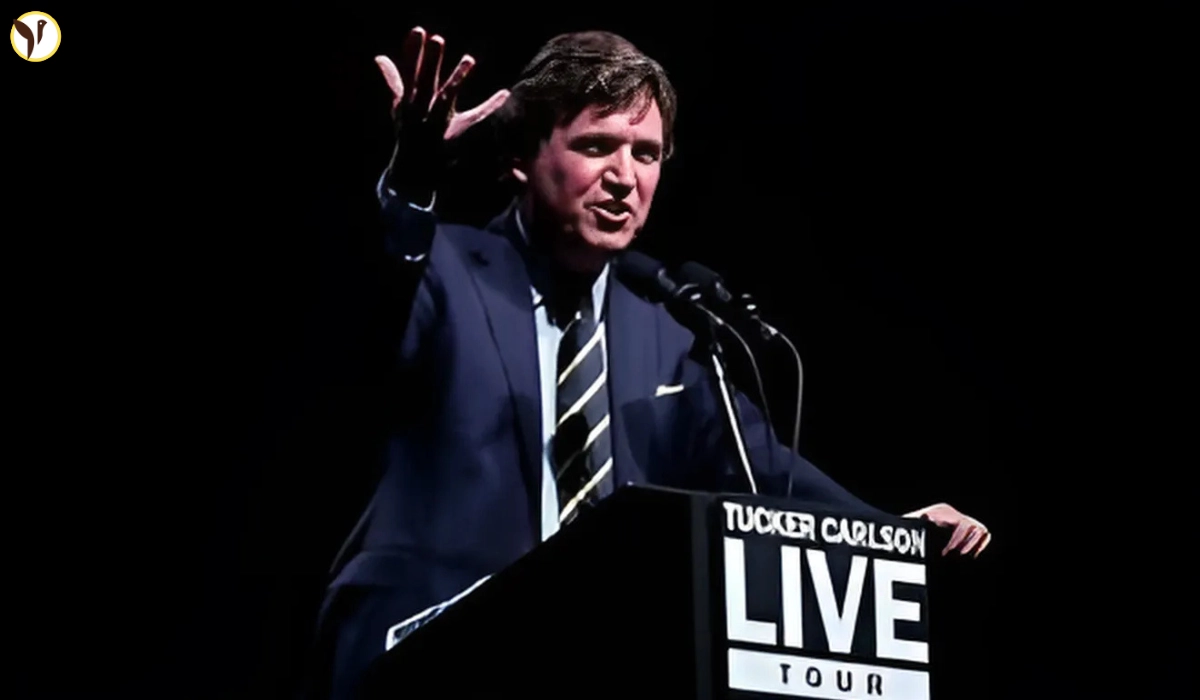Senator Ted Cruz appeared on The Tucker Carlson Show recently and faced tough questions from the host regarding his stance on Iran. What began as a policy discussion quickly escalated into a heated exchange.
Carlson, known for his firm non-interventionist views, asked Cruz for simple facts about Iran—like how many people live there and the country's ethnic makeup. When Cruz failed to give a clear answer, Carlson pressed him on why he was pushing for a hardline stance on a country he didn’t seem to fully understand.
Cruz defended his position by saying that as a U.S. senator, his job isn’t to memorize every statistic but to stand strong against regimes that threaten global peace. However, Carlson argued that anyone advocating for foreign action should have a basic grasp of the country in question.
The moment created visible tension. Cruz accused Carlson of trying to score points by catching him off guard, while Carlson insisted he was simply holding lawmakers accountable for their words.
This televised moment wasn’t just about facts—it highlighted a much deeper conflict in conservative politics. Carlson has repeatedly questioned America’s involvement in foreign wars, especially in the Middle East.
He represents a growing part of the Republican base that favors focusing on domestic issues over military actions abroad. In contrast, Cruz supports a more aggressive approach toward countries like Iran, seeing them as serious threats that need to be dealt with firmly.
The exchange also touched on broader concerns. Carlson’s line of questioning suggested that many lawmakers make major policy decisions without fully understanding the context. His pushback wasn’t just personal—it was aimed at a pattern of behavior he sees as common in Washington.
The interaction quickly went viral, drawing attention not only for its confrontational nature but for exposing how divided the Republican Party has become over foreign policy. Some viewers sided with Carlson, saying his questions were valid and necessary.
Others backed Cruz, arguing that the senator’s stance was justified given Iran’s long history of hostility toward the U.S.
What’s clear is that the discussion touched a nerve—both in the studio and among the public.
Holy shit. Tucker Carlson just completely demolished Ted Cruz.
— CALL TO ACTIVISM (@CalltoActivism) June 18, 2025
“YOU DON’T KNOW ANYTHING ABOUT IRAN! You’re a U.S. senator and you don’t know anything about the country you want to topple.”
Tucker might have just ended his career:
pic.twitter.com/ByXqMIVTVg
Deeper Divisions Inside the Republican Party
The on-air disagreement between Carlson and Cruz is a clear example of the growing divide among conservatives over America’s role in global affairs. In recent years, more Republican voices have moved away from the party’s older foreign policy positions
which often supported U.S. intervention to fight terrorism or promote democracy overseas. Instead, a new wave of conservatives—including Carlson—are focusing on keeping the U.S. out of conflicts that don’t directly affect American interests.
Carlson’s viewpoint is rooted in the belief that the U.S. has overextended itself in foreign wars, wasting resources and lives without always achieving clear results. Since leaving Fox News, he has created his own media platform, which he uses to speak freely about issues like this.
He frequently criticizes both Democrats and Republicans who advocate for military involvement abroad, arguing that their policies often do more harm than good.
On the other side, Cruz and other traditional conservatives maintain that threats like Iran cannot be ignored. They believe that by taking a firm stand now, the U.S. can prevent greater problems down the road.
Cruz has said that failing to deal with countries that support terrorism or threaten allies could lead to even more dangerous situations in the future.
This disagreement highlights a broader challenge for the Republican Party. With elections coming up, these internal policy differences could influence how candidates campaign and what kind of foreign policy platform they promote.
Some may choose to echo Carlson’s America-first, anti-interventionist stance. Others will likely continue to advocate for a strong global presence and the use of U.S. power to influence world events.
The Carlson-Cruz exchange also demonstrates how conservative media is shifting. Carlson’s departure from mainstream outlets like Fox News has allowed him to take a more independent approach, giving him the freedom to challenge even powerful political figures within his own party.
As a result, he’s become a key voice for a group of conservatives who feel traditional GOP leaders no longer represent their views.
Whether this shift becomes a dominant force in Republican politics remains to be seen. But one thing is certain: the conversation between Carlson and Cruz has added new fuel to a debate that continues to reshape the future of the party.









